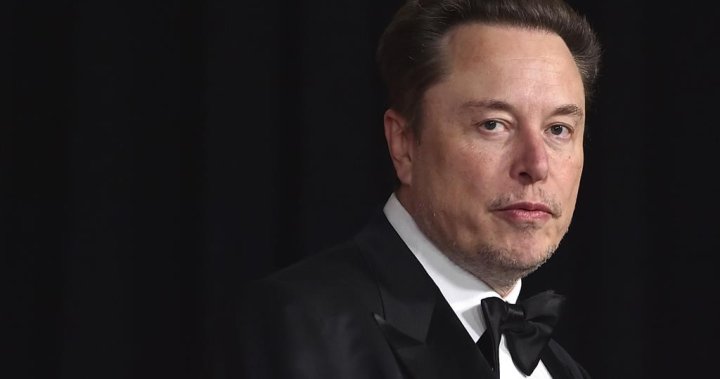A $2.14-billion federal loan for Telesat, a satellite operator based in Ottawa, has sparked debates among Canadian politicians regarding whether Elon Musk, an American billionaire, poses a national security risk. With the goal of connecting every Canadian household to high-speed internet by 2030, the government’s loan to Telesat is intended to launch a constellation of low Earth orbit satellites that will connect remote areas to broadband internet. Conservative MP Michael Barrett raised concerns about the price tag of the loan, prompting a comparison to Musk’s Starlink service, which Musk claimed would cost less than half the amount provided to Telesat. However, Dan Goldberg, Telesat’s CEO, clarified that the loan was given to his company, not to Musk, and that a portion of the loan would go to Musk’s SpaceX for satellite launches.
Telesat plans to pay the government nine percent interest on the loan and give up around a 12 percent equity stake in the company to the Canadian and Quebec governments. The loan is part of the government’s commitment to spending $600 million to purchase internet capacity once the system is operational. The initiative aims to connect all Canadian households to high-speed internet by 2030, especially those in the most remote communities that rely on satellite service. Traditional satellite internet has limitations but newer low Earth orbit satellite systems, like those being implemented by Telesat and Starlink, offer high-speed internet without the same issues.
In response to criticism from Conservative politicians, Innovation Minister François-Philippe Champagne accused them of wanting to compromise national security. He stressed the need for a reliable network, sovereignty, and resiliency in remote northern regions, especially for critical military infrastructure. The Conservative Party argued that SpaceX’s Starlink service would be a better option, citing its availability and lower cost than the loan to Telesat. They also tried to connect the contract to Mark Carney, a former Bank of Canada governor and economic adviser to the Liberals, who is a friend of Telesat’s CEO. However, Goldberg dismissed any influence Carney had on securing the loan.
Elon Musk’s controversial statements and actions, including spreading false information on social media, have raised concerns about his involvement in providing services like Starlink to countries like Canada. Telesat has defended its partnership with the Canadian government, emphasizing the strategic importance of the space sector and the need for domestic operators to be involved. Experts have noted the potential risks associated with a foreign-owned company like Starlink providing essential communication services in Canada, particularly in terms of national security and sovereignty. While Musk has demonstrated his capabilities through SpaceX’s contracts with the U.S. Defense Department, there are concerns about potential future conflicts or changes in policies that could impact Canadian operations.
In conclusion, the loan to Telesat and the controversy surrounding Musk’s involvement in providing high-speed internet services to Canada highlight the complexities of national security, technology, and strategic partnerships in the modern era. As Canada aims to connect all households to high-speed internet by 2030, the choice between a Canadian satellite operator like Telesat and a foreign-owned company like SpaceX raises questions about sovereignty, resiliency, and strategic communication capabilities. The government’s decision to provide a loan to Telesat, despite criticism from the opposition, reflects a commitment to advancing internet connectivity while ensuring national security interests are safeguarded. The ongoing debates surrounding Musk’s role in providing critical infrastructure services underscore the importance of balancing innovation, security, and sovereignty in the rapidly evolving field of satellite technology.













